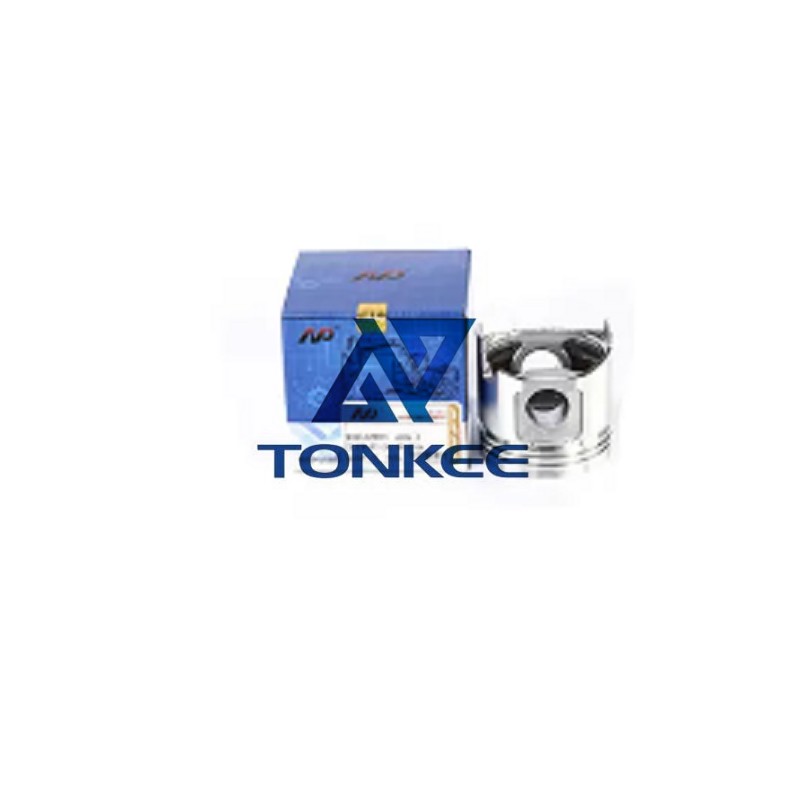
Material Composition: The piston is typically made from high-strength aluminum alloy or cast iron.
Yanmar uses high-quality materials to ensure durability and resistance to heat and pressure.
Diameter and Stroke: The piston's diameter and stroke are critical factors that determine the engine's displacement, which affects its power output. The 4D84-2 and 4D84-3 engines have specific piston sizes that are tailored to their design.
Piston Rings: Piston rings are essential for sealing the combustion chamber and preventing gas leakage. Yanmar engine pistons come with carefully designed and precision-fitted rings to minimize wear and maintain compression.
Skirt Design: The piston skirt is the lower portion of the piston that comes into contact with the cylinder walls. The design of the skirt is critical for reducing friction and ensuring efficient movement within the cylinder.
Crown Configuration: The piston crown, also known as the head, features various designs to optimize combustion and heat dissipation. Yanmar engineers these crowns to promote complete and efficient burning of the fuel-air mixture.
Cooling Gallery: To manage the heat generated during combustion, some pistons have cooling galleries.
These are channels or ducts within the piston that allow coolant to circulate, regulating the piston's temperature and preventing overheating.
Pin Bore: The piston pin bore accommodates the wrist pin or piston pin, which connects the piston to the connecting rod. The precision of this bore is crucial to prevent play and ensure smooth movement.
Pin Retention: Securely retaining the wrist pin is essential for reliable engine operation. Yanmar pistons employ various methods like circlips or lock rings to ensure the wrist pin stays in place.
Compression Height: This is the distance from the piston pin bore to the crown of the piston. The compression height affects the engine's compression ratio, which influences its overall performance and efficiency.
Weight: The weight of the piston is a critical factor in engine balance and performance. Yanmar engineers design the piston's weight to work in harmony with the rest of the engine components.
Coating and Surface Treatment: Many modern engine pistons feature coatings or surface treatments to reduce friction and wear, improving efficiency and longevity.
Tolerance and Quality Control: Precision manufacturing and strict quality control are paramount in piston production. Yanmar ensures that each piston meets stringent tolerance and quality standards to guarantee reliability.



 English
English Русский язык
Русский язык



